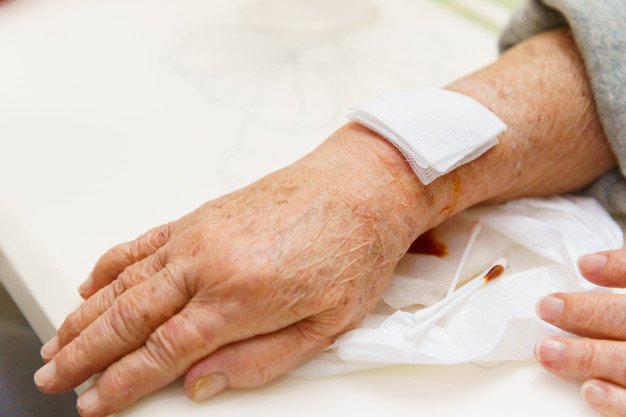An open wound is an injury that breaks the skin leaves internal tissue exposed. The most common causes of open wounds are sharp objects, falls, and car crashes.
Some wounds heal on their own with a bandage and a bit of patience. However, in case of more serious wounds, you should seek help from medical professionals, such as the ones working in this wound care center Lewisville.
Types of Open Wounds:
- Lacerations are deep cuts or tears of the skin. They’re usually caused by knives, machinery, or tools. If the laceration is deep, it can cause extensive bleeding.
- Abrasions occur when the skin scrapes or rubs against a hard or rough surface. They usually don’t cause lots of bleeding, but need to be cleaned in order to prevent infections.
- Avulsions are usually a result of violent accidents like gunshots, explosions, and crushes. They involve tearing away of the skin and the tissue beneath, as well as heavy bleeding.
- Punctures are small holes caused by long and pointy objects like needles or nails. In some cases, a puncture wound can be caused by a bullet. Even if there is no heavy bleeding, the puncture can be quite deep and cause damage to your internal organs.
How to Treat Open Wounds:
Some minor wounds can be treated at home, while others require immediate medical care.
Treating Wounds At Home
- If your wound is minor, start by washing and disinfecting it to remove any dirt or debris. Try to stop the bleeding by applying direct pressure.
- Use sterile bandage or dressing to wrap the wound. Keep it dry and clean for a few days and get lots of rest.
- If you feel any pain, you can take Tylenol, but avoid using products that contain aspirin as they can cause bleeding. You can also consult with your doctor about using CBD to ease the pain.
- If there’s swelling or bruising, apply some ice.
- Apply sunscreen every time you’re going out until the area heals completely.
When to Seek Medical Help
Seek medical help immediately in the following cases:
- The wound is deep, large, or has jagged edges.
- The bleeding won’t stop after applying pressure or lasts for more than 15 minutes.
- The edges of the wound don’t stay together.
Medical Treatments for Open Wounds:
After cleaning the wound, your doctor might close it using sutures, stitches, or skin glue. In case of a puncture, you’ll probably get a tetanus vaccine as well.
Depending on the wound’s severity, your doctor may leave the wound open and allow it to heal naturally. In that case, you’ll probably need to pack the wound with sterile gauze to prevent infection. Make sure your hands are clean whenever you’re changing your dressings and bandages. Before dressing the wound again, you should disinfect it.
If there’s a risk of infection, you’ll need to take antibiotics.
In case of very serious wounds, you may need surgical intervention.
Possible Complications:
The most complication of open wounds is an infection. Here are some common signs of infection:
- Green, malodorous, or cloudy drainage
- Fever of over 101oF
- Continual pain from the wound
- Redness, hot skin, or swelling around the wound
- Loss of movement and function
Final Thoughts
Regardless of whether your wound is minor or serious, it’s crucial to take immediate action. Minor wounds usually heal on their own, but if you’re seriously wounded, you need to see a doctor immediately in order to receive appropriate treatment and reduce the risk of infection.
Read Also:
























